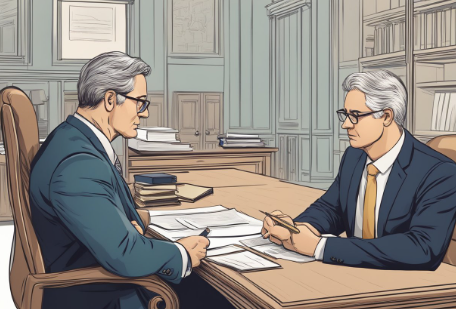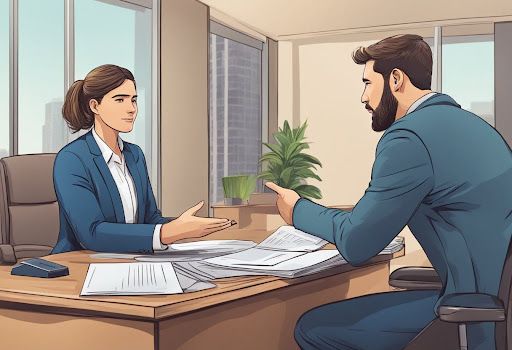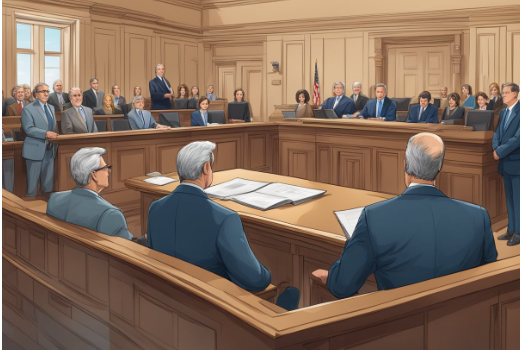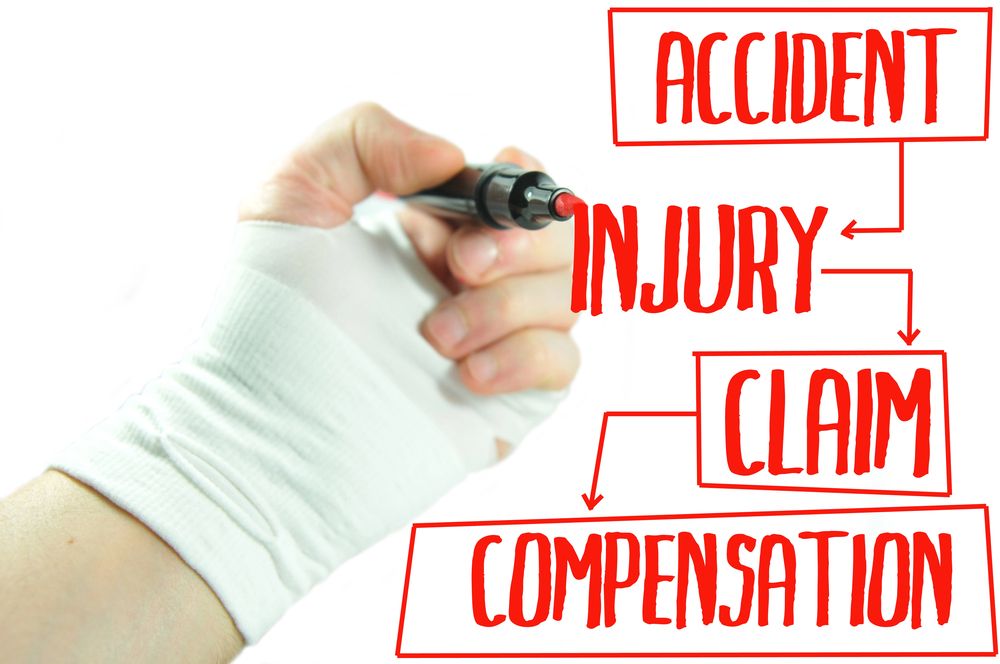7 Questions to Ask a Personal Injury Lawyer: Essential Guidance for Your Case
When you're dealing with a
personal injury case, finding the right legal representation is crucial. You want a personal injury lawyer who understands your needs and knows how to navigate the legal system effectively. Asking the right questions can help you make an informed choice and ensure you have the best possible representation.

You might wonder what to ask during your initial meeting with a lawyer. Questions about their experience, success rate, and fees can provide valuable insight.
Knowing the right questions can help you feel more confident in your decision and assure you that your case is in good hands.
It's important that you feel comfortable with the guidance your lawyer provides. Familiarity with similar personal injury cases can make all the difference.
A knowledgeable lawyer can explain the legal process clearly, giving you peace of mind throughout the journey.
Understanding Your Personal Injury Case
When dealing with personal injury, understanding the process can help you feel more confident. Knowing different types of cases, what happens during a lawsuit, and how to evaluate the potential worth of your case are key.
Types of Personal Injury Cases
Personal injury cases include a variety of situations. Car accidents are among the most common, often resulting from someone else's negligence on the road.
Medical malpractice occurs when healthcare professionals fail to provide adequate care, leading to injury or harm.
Product liability involves injuries caused by defective products. Dog bites, another type, can lead to serious injury and legal claims against the pet owner.
Slip and fall cases arise when a person is injured due to unsafe conditions on someone else's property. Lastly, workplace accidents cover injuries that happen while on the job, ranging from minor injuries to more serious incidents.
The Personal Injury Lawsuit Process
The legal process for personal injury can seem complicated. Initially, you start by filing a claim with the insurance company.
This is often followed by an investigation where both parties examine the facts of the case.
If a settlement is not reached, the next step is filing a lawsuit. This involves gathering evidence, deposing witnesses, and preparing for trial.
Sometimes, cases are settled before reaching the courtroom. If not, a judge or jury will decide. Keep documents, medical records, and evidence organized, as these are crucial to supporting your claim.
Evaluating the Worth of Your Case
Determining case worth involves several factors. The first component is calculating actual medical expenses and potential future healthcare costs related to the injury.
Lost wages, due to missing work, are another factor. These give a base value to the economic impact.
Pain and suffering are more challenging to quantify but can increase case value. Long-term effects of injuries, like disabilities or reduced quality of life, impact worth as well.
Each case is unique, so discussing specifics with your lawyer helps in understanding the potential compensation you might receive.

Choosing the Right Personal Injury Lawyer
To choose the best personal injury lawyer, you should consider their trial experience, success with cases like yours, and whether they offer a free consultation. These factors can help ensure you make an informed decision when hiring a personal injury attorney.
Assessing Lawyer's Trial Experience and Success Rate
Trial experience is crucial when picking a personal injury lawyer. A lawyer who has handled many cases in court may be better prepared to advocate for you.
You should ask about their success rate in trials. A lawyer who has won complex cases or achieved favorable settlements might be better equipped to handle your lawsuit.
Examining client testimonials can give insight into a lawyer's achievements and courtroom track record. This information can help you evaluate their potential to win your case.
It's helpful to prepare a few questions about past trials and outcomes during your initial meeting.
Importance of Similar Case Experience
It’s essential to hire a lawyer who has dealt with cases similar to yours. Such experience means they understand the specific challenges involved. This might be about the type of injury or the circumstances of the accident.
Similar case experience often leads to a deeper knowledge of relevant laws and procedures. This may result in a more effective representation.
Discuss any similar cases they've handled and their results.
By asking about these cases, you can determine whether they’re equipped to tackle the specifics of your situation. This type of experience can often lead to better outcomes in court or settlement negotiations.
The Benefit of a Free Consultation
A free consultation provides an opportunity to assess the lawyer without financial commitment. This meeting helps you decide if they're the right fit for your case.
You can use this time to discuss your situation and hear their approach.
During the consultation, ask about details such as their fees and payment plans. You can also inquire about communication preferences and how often they will update you.
You can gauge whether your personality meshes well with theirs. This is crucial for working closely throughout the legal process. A free consultation allows you to make a more informed decision.
Financial Considerations
When seeking a personal injury lawyer, it's important to think about how you'll pay for their services. Many lawyers work on a contingency fee basis, which can impact your final compensation. You should also plan for additional costs like expert witness fees and medical expenses.
Understanding Contingency Fees
A contingency fee means your lawyer only gets paid if you win your case. This fee is usually a percentage of your compensation.
It's essential to know what this percentage is, as it can vary. Always ask questions about the fee structure before hiring a lawyer.
Make sure to find out if you will also be responsible for other legal fees in addition to the contingency fee. Some lawyers may charge extra for certain services or expenses.
It's important to get these details upfront to avoid surprises.
Anticipating Additional Legal Costs
Beyond the contingency fee, you might encounter additional costs. These can include expenses for expert witnesses, gathering evidence, and medical records.
Knowing these potential costs helps you prepare better financially for your case.
Before proceeding, ask your lawyer to provide a list of possible extra costs. This will help you budget and determine if pursuing your case is financially viable.
Keep in mind that these costs may affect your final compensation amount.
To maximize compensation, ensure you understand all potential expenses and request an estimate from your lawyer. This transparency can help you make informed decisions about your legal options.
Navigating the Legal Timelines
Understanding legal timelines is crucial in a personal injury case. Knowing when to file can affect the outcome of your claim. Different factors like the statute of limitations play a key role.
Statute of Limitations in Personal Injury Cases
The statute of limitations sets a deadline for filing a personal injury claim. This timeline varies by state, so checking local laws is key. Generally, this period ranges from one to six years. Missing this deadline usually means losing the right to file a lawsuit.
Insurance companies often consider the statute of limitations when negotiating settlements. They may be less willing to settle if they know you can no longer file a lawsuit.
It's important to act promptly to avoid jeopardizing your case.
If a jury trial is needed, the timeline could be extended further. This involves prep time and court schedules. Knowing these details can help you navigate through the legal process effectively.
What experience do you have with personal injury cases similar to mine?
You should ask the lawyer about their experience with cases like yours. Knowing they have handled similar cases can give you confidence in their ability to manage your claim effectively.
How do you typically approach the negotiation of settlements?
Understanding the lawyer's approach to negotiations can provide insight into what you can expect during the claim process. It is important to know if they are aggressive or prefer a more measured approach.
Can you provide an overview of the legal process I should expect in a personal injury claim?
Requesting a breakdown of the legal process can help you know what steps will be taken and how long each phase might last. This helps set realistic expectations.
What do you consider to be the biggest challenges in my case?
Discussing potential challenges allows you to understand what obstacles you might face. This can better prepare you for what lies ahead and help manage expectations.
How do you structure your fees, and will I be responsible for any costs if we do not win?
Ask about the lawyer's fee structure to know what financial commitments you might have. Clarifying this can prevent unexpected expenses later on.
What information or documentation will you need from me to effectively represent my case?
Providing the right documentation can be crucial. Knowing what is needed in advance ensures you are prepared. It can help your lawyer represent you more efficiently.
Frequently Asked Questions
When hiring a personal injury lawyer, it's important to know their experience, approach to settlements, and fee structure. Understanding these aspects can help you make informed decisions about your legal representation.










